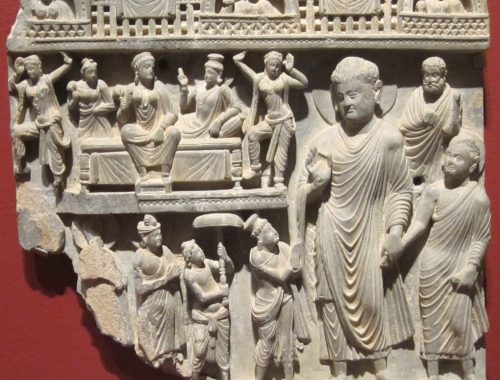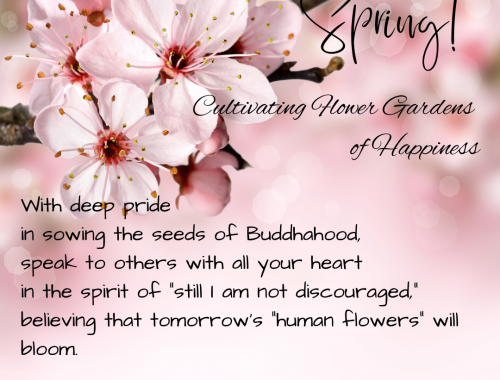The Five Cardinal Sins
In a religious context, sin is a transgression against divine law or a law of God.[1] Each culture has its own interpretation of what it means to commit a sin. While sins are generally considered actions, any thought, word, or act considered immoral, selfish, shameful, harmful, or alienating might be…
Where Hope Still Lives
“It was the best of times, it was the worst of times, it was the age of wisdom, it was the age of foolishness, it was the epoch of belief, it was the epoch of incredulity, it was the season…
World Peace
True joy is found in working for world peace, in taking action for our own and others’ happiness. The term kosen rufu, often used interchangeably with world peace has its origins in the Lotus Sutra. The concept comes from a passage…
Proof of the Wisdom of the Lotus Sutra
In judging the relative merits of Buddhist doctrines, I Nichiren, believe that the best standards are those of reason and documentary proof. Even more valuable than reason and documentary proof is the proof of actual fact. Three Tripitaka Masters Pray for…
On Attaining Buddhahood in this Lifetime
On Attaining Buddhahood in this Lifetime If you wish to free yourself from the sufferings of birth and death you have endured since time without beginning and to attain without fail unsurpassed enlightenment in this lifetime, you must perceive the…
The Kalpa of Decrease
Some are beyond redemption The present age [of the Latter Day of the Law] is such that neither the non-Buddhist scriptures, the Hinayana sutras, the Mahayana sutras, nor the one vehicle of the Lotus Sutra has any effect….The extremity of…
On Attaining Buddhahood in This Lifetime
On Attaining Buddhahood In This Lifetime This letter was written to Toki Jōnin in the seventh year of Kenchō (1255), two years after Nichiren Daishonin established his teaching of Nam-myoho-renge-kyo. Myoho-renge-kyo is the title of the Lotus Sutra, but to the…
Pleasure Is Different Than Happiness
Dorian Gray, or perhaps Oscar Wilde once said that pleasure is different than happiness. Aristotle said “Happiness is the meaning and purpose of life, the whole aim and end of human existence.” [1] According to Buddhist teachings, there are two…
Cultivating Flower Gardens of Happiness
Refute the Erroneous & Reveal the True
Rune_poem_Hickes_1705 The Teaching of Universal Enlightenment The practice of refuting erroneous teachings in the realm of Buddhism is ultimately a struggle of compassion fought with the force of reason. The Lotus Sutra or Nam Myoho Renge Kyo constitute the name…









